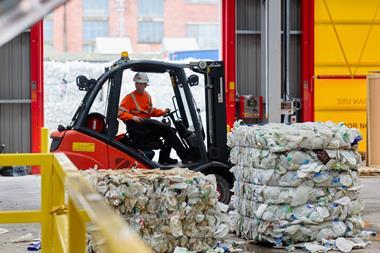To inspire students to study chemistry at university, school curricula need to do more to place the subject in context

The world faces huge challenges in the coming decades. It’s not just about climate change, it’s about the environment more generally and how societies must learn to do everything sustainably and although many of the changes we’ll need to make will be social and economic, there are many technological challenges which will have to be addressed. Chemistry will play a critical role in almost all of them, so it is essential to ensure that the subject is seen as an attractive study choice. It is therefore a concern that applications to study chemistry at university have declined significantly in recent years but whatever the reasons for this decline, it is our contention that chemistry curricula at every level should and must reflect the central contribution the discipline will make in addressing these and other global challenges such as healthcare. We do not imply that the contextual basis of chemistry is absent from current curricula, not at all, but we argue here for a much more broadly-based context within which the subject should be taught and one which highlights the problems we still need to solve. What follows are a few examples of topics which: (a) require a solution, (b) will hopefully inspire the young and (c) should be part of the general knowledge of graduating chemists even if they choose to pursue other careers.
A supply of energy is essential to the continued existence of human society, but we need alternatives to fossil fuels. One alternative is to harness solar energy, but many photovoltaic materials use elements that are becoming increasingly scarce and for which demand is likely to exceed availability. Thus, we not only require materials that are cheaper, and which have higher efficiencies, we must also develop examples that make more use of so-called earth-abundant elements. Such elements will also be important in batteries, the demand for which is set to multiply dramatically as we transition to electric vehicles. Whether it be photovoltaics or batteries, we must invest in better recycling technologies but using more abundant elements to replace those which are scarce (or come predominantly from countries with poor human rights records) will become essential and not only for batteries; much of the electronics industry, whose ubiquitous products are now so much a part of our daily lives, relies on elements whose ready availability can, in some cases, be measured in mere decades.
Besides energy generation, some of the biggest challenges we face are associated with transport. An alternative to battery powered vehicles is to use hydrogen to provide power either directly by combustion or using fuel cells. Hydrogen will likely become important in other areas as well such as energy storage, but any hydrogen economy will require significantly better hydrogen storage materials. Nevertheless, while batteries and hydrogen each offer an alternative to using hydrocarbon fuels in road transportation, such fuels are likely to continue to be needed for aviation; biofuels are a potential option here even if only as an interim measure.
What about composites and plastics? New and improved composites for wind turbines and aerospace applications will need to be made from greener resins and be easier to recycle. With regard to plastics, we’ll increasingly phase out their use in some applications but where they are needed (and there are a great many applications where they are), they will have to be produced and recycled sustainably or, in some cases, be biodegradable.
We need to involve industry to a much greater extent in the design of future curricula
Progress in all of the areas highlighted above, and many others, will require concerted research efforts in both academia and industry all of which will require skilled researchers. If we are to make certain that sufficient researchers are available in the requisite numbers, curricula at every level must include examples of real-world challenges that demonstrate how important chemistry is. It cannot just be about teachers and educators, however. We need to involve industry to a much greater extent in the design of future curricula and we must continue to develop partnerships with both industry and government not only to highlight the scientific issues but also to demonstrate the employment opportunities available for graduates.
Whatever the details of what we do, the conclusion is clear. Chemists, working alongside other scientists and engineers will be essential partners in developing the solutions we need with increasing urgency and it is, therefore, incumbent on us all not only to ensure that future generations recognise the problems but that they are inspired to be part of the solution.
Since we first drafted this article, the world has been beset by the coronavirus pandemic with all its attendant health and economic consequences. Whether it be vaccines or drugs to treat Covid-19, chemistry already is and will continue to be part of the solution. What many are now saying, however, is that environmental sustainability must be central to any post-Covid recovery plans, which only serves to reinforce the points we’ve made above.












No comments yet